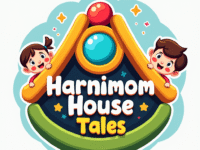
Why Language Development Is Crucial in the Toddler Years
The toddler years—roughly ages 1 to 3—are a critical window for language development. During this period, a child’s brain is like a sponge, rapidly absorbing sounds, patterns, and meanings. But language isn’t just about talking—it’s deeply connected to how toddlers think, feel, and relate to the world around them.
1. Language Fuels Brain Development
Language and brain development are tightly linked. The more words a toddler hears and uses, the more neural connections are formed. Studies show that children who are exposed to rich, interactive language environments in their early years often have:
- Better memory
- Stronger problem-solving skills
- Higher academic achievement later on
Every conversation, song, or story a toddler hears contributes to building their cognitive foundation.
2. It’s How Toddlers Express Themselves
Toddlers experience intense emotions, but their ability to express those feelings depends on their language skills. When children can say “I’m sad” or “I need help,” they’re less likely to resort to hitting, crying, or tantrums to get their point across.
Language gives toddlers:
- Emotional vocabulary (“I’m mad,” “I don’t like that”)
- Tools for self-regulation
- Confidence to assert needs
Delayed language development can lead to frustration and behavior issues—not because the child is “difficult,” but because they’re struggling to be understood.
3. It Builds Relationships and Social Skills
Language is at the heart of social connection. Toddlers use it to:
- Ask questions (“What’s that?”)
- Engage in pretend play
- Make friends
- Understand rules and routines
Learning how to take turns in conversation, listen to others, and use polite words are all part of early social-emotional learning—and they start with language.
4. Language Is the Gateway to Literacy
Before children can read or write, they must first master spoken language. Skills like:
- Recognizing sounds (phonemic awareness)
- Understanding sentence structure
- Building a wide vocabulary
…all begin in toddlerhood. Reading aloud, singing, and storytelling during these years lay the foundation for strong literacy skills later on.
5. The Early Years Are a Unique Window of Opportunity
Research shows that the first three years of life are when the brain is most responsive to language input. While it’s never “too late” to support a child’s language, these early years are the most powerful time to do it.
Children who start behind in language often face challenges catching up—especially if there’s limited exposure to interactive language at home or in care settings.
How to Support Toddler Language Development
- Talk with them constantly, even if they’re not responding with words yet
- Read daily, using expressive voices and asking questions
- Label feelings, objects, and actions in everyday life
- Sing songs and rhymes that repeat sounds and phrases
- Listen patiently and expand on their words (“You said ‘ball’—yes, it’s a red ball!”)
Avoid correcting or pressuring toddlers. Instead, model rich, loving, and engaging communication.
Final Thought
Language development in the toddler years is not just about learning words—it’s about giving children the ability to understand their world, express who they are, and connect meaningfully with others. By nurturing your toddler’s language skills now, you’re laying the groundwork for their future success—emotionally, socially, and academically.
How Storybooks Naturally Build Vocabulary
Storybooks work better than flashcards or screens because they:
- Use repetition to reinforce new words (“Ellie jumps! Ellie jumps high!”)
- Pair pictures with language, helping toddlers associate meaning
- Show everyday scenarios toddlers can relate to (e.g., going to the park, feeling sad)
Try This at Home: Read a favorite book 3–5 times a week. Pause before key words and let your toddler fill in the blank.
Books That Encourage Toddlers to Talk
When you read aloud, you’re modeling the rhythms of speech and language. Choose books that:
- Have simple, rhythmic phrases
- Repeat words and actions
- Encourage participation (e.g., animal sounds, pointing to objects)
Ellie Finds Her Voice

Ellie Finds Her Voice – Ellie mimics animal sounds, describes her toys, and learns to ask for help. Great for modeling toddler-friendly phrases!
SHOP NOW
Real-Life Tips for Using Books to Spark Language
- Point and name objects: “That’s a ball. Can you say ball?”
- Ask open-ended questions: “What do you think Ellie sees in the sky?”
- Use gestures alongside words
- Sing parts of the book to add memory support
- Repeat your toddler’s words and expand: “Dog!” → “Yes, that’s a big brown dog.”
Reading Routines That Help Language Stick
- Bedtime books: Repetition at the end of the day boosts memory
- Books at snack time: Associate calm, connected moments with language
- Take books outside: Label things you see together
Toddlers learn through routine and repetition. Even if it feels repetitive to you, it’s building brain connections for them.
Encouraging Late Talkers Through Books
Not all toddlers talk on the same timeline. Books are especially helpful for:
- Building confidence through non-verbal interaction (pointing, gestures)
- Creating low-pressure ways to practice sounds
- Modeling back-and-forth communication
Recommended Read: Ellie Finds Her Voice– This gentle story helps toddlers understand that words will come in their own time and shows how parents can support without pushing.
Pair these books with simple tools to enhance language at home:
Free ABC Printable Flashcards
Download Your Daily Routine Kit
Final Thoughts
Language learning doesn’t require fancy toys or flashcards—it begins with you, a cozy book, and a few quiet minutes together. By choosing books rich in rhythm, repetition, and real-life moments, you’re laying the foundation for lifelong communication.
Looking for more books to build toddler communication skills?
Browse all Ellie storybooks for talking, listening, and language growth → Explore Now













